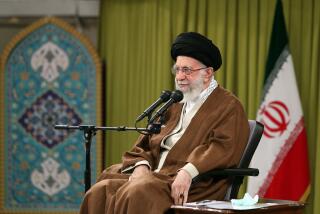When blasphemy is a crime
The United Nations General Assembly may soon vote — not for the first time — in favor of a resolution opposing the “defamation of religions.” The idea, which may sound appealing at first blush, is particularly championed by Islamic countries, which would like to go even further and have the condemnation enshrined in international law.
But a new report by Freedom House, a Washington-based human rights organization, demonstrates how such policies have too often been used by countries to suppress freedom of speech and freedom of religion, leading to serious human rights abuses.
Freedom House examined laws against blasphemy and religious insults in Algeria, Egypt, Greece, Indonesia, Malaysia, Pakistan and Poland. Some were more aggressive in enforcing the laws than others, and penalties varied from fines to imprisonment to death sentences. But in every nation it studied, Freedom House found violations of international human rights norms.
Some of the laws purport to shield more than one religion from verbal abuse. As a practical matter, however, anti-blasphemy laws generally protect the majority faith. For example, Freedom House found that in Greece, blasphemy laws “are used only to prosecute cases of perceived blasphemy against the Orthodox Church.” In Indonesia, the laws “have been used mostly to target blasphemy against Islam” by minority Islamic sects, Christians and followers of indigenous religions.
The laws also are used to target journalists, artists and political dissidents. In Egypt, Freedom House notes, several bloggers currently detained for alleged blasphemy have written critically about the government. In Poland and Greece, artists have run afoul of blasphemy laws, though convictions have been overturned on appeal. Even in those cases, Freedom House says in its report on Greece, blasphemy prosecutions impose financial burdens on the defendants and have a chilling effect.
Attacks on religion can be deeply offensive, which is why believers of many faiths pleaded with the Rev. Terry Jones not to burn copies of the Koran last month. But even many of his critics recognized that he had the constitutional right do so, just as adherents of other faiths (or of no faith) are free in this country to question, and even mock, Christianity.
Some argue that such freedom is a luxury that can be enjoyed only in stable, democratic societies like the United States. According to this argument, developing multicultural societies need blasphemy laws to prevent religious strife. But Freedom House demonstrates that the evenhanded application of such laws is an illusion.
The United Nations should be working to abolish blasphemy laws, not endorse them.
More to Read
Sign up for Essential California
The most important California stories and recommendations in your inbox every morning.
You may occasionally receive promotional content from the Los Angeles Times.










